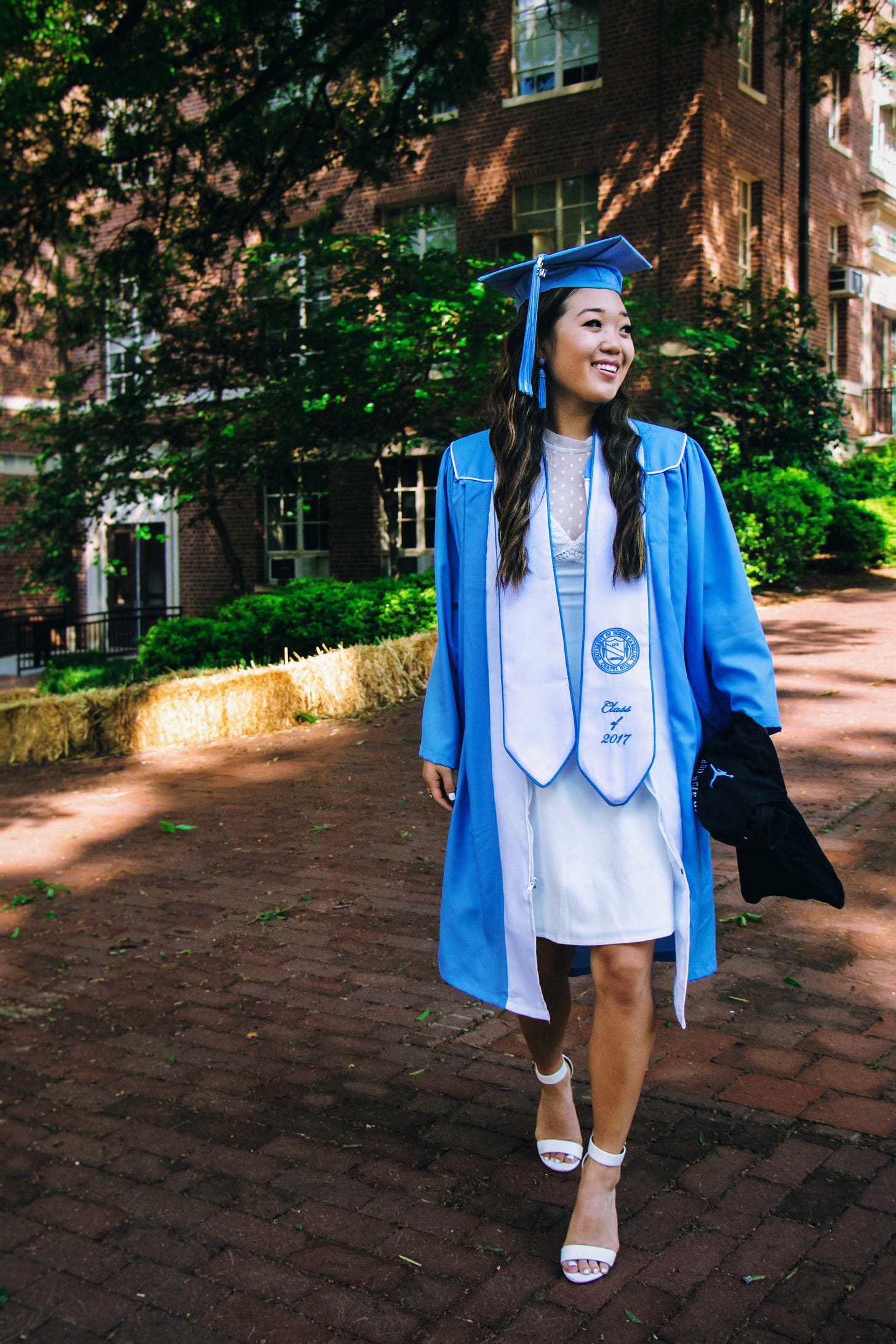The Dark Truth Behind Why I Don't Follow Trends...
Fair warning: a therapy session with my former self.
Hello, May — Asian American Native Hawaiian Pacific Islander Month.
Whenever AANHPI Month comes around, I find myself reflecting on my childhood — specifically, the painful parts of my past that helped me embrace who I am. A blessing in disguise, as I like to call it. The older I get, the less I find myself revisiting these memories. During certain seasons, they still trigger something in me, which is something I’m still navigating to this day.
The focus of this post is simple: as a social media strategist who researches and analyzes trends and how they're used in online culture, here’s the catch: I personally choose not to follow them.
I’ve shared this perspective with my clients, but I want to express it more publicly in hopes that it resonates with someone who shares this mindset and is interested in working together.
What Inspired This Post:
I shared this video here on Instagram last year and recently stumbled across it again, only to find myself deeply triggered by it.
One of the saddest truths I’ve buried is also one of the only things I vividly remember from my college years: the constant questions I asked myself: “How much smaller can I get?” “How strong am I to keep going?” and “How long can I keep hiding this secret from the world?”
Let’s Rewind:
I grew up in a small hometown called Fayetteville, North Carolina. Because of the environment I was in, all I ever wanted was to fit in with the other girls. But the problem was that I didn’t look like them. They all had blonde or brunette, perfectly straight hair and wore the same clothes. Looking back now, I cringe at how $50 Rainbow flip-flops were the “it” shoe growing up. I bought a pair in brown, blue, green, and even another brown one that I now use as beach sandals. (Sorry, Mom.)
I didn’t realize I had been living in a bubble until I got to college. Attending the University of North Carolina at Chapel Hill opened my eyes. I began to understand that my obsession with being “perfect” stemmed from years of trying to fit in with the girls back home. And that desire for perfection started with how I looked. I had convinced myself that in order to be the part, I had to look the part.
I’ll never forget the day it all shifted. A classmate named Nathan said in front of everyone that I was fat. That moment changed everything.
That night, I made a silent promise to myself: No one would ever say that to me again. From that moment on, I decided I would do whatever it took to become the “perfect” version of myself. And so… I stopped eating at school.
That was the beginning.
Junior year at Terry Sanford High School, my secret pursuit of achieving perfection began. I’d go to lunch period and sit there with a fashion notebook in hand, looking at the photos of models to remind myself how strong I was. No one questioned it, and I was relieved. Day by day, I felt more powerful, more invincible. Almost like this challenge was too easy and I was in control.
But skipping lunch wasn’t enough.
Weeks went by and I started to develop weird habits like weighing myself twice a day — morning and night, going for 1 hr walks that eventually turned to runs around the neighborhood after school, eating a handful of rice for dinner, or more like stuffing my face with rice because I was starving, and cutting off my water intake after 6 PM.
The habits became obsessions. Routines that were required and enforced by me.
As my weight continuously dropped, I felt more and more powerful. Physically, I was weak but mentally, nothing could break me and no one could stop me. I was finally on my way to becoming perfect. I’d sit at the lunch table as my classmates ate and felt a sense of pride — they’re not as strong as me. They could never be as disciplined as me. For the first time, I felt like I had something they didn’t. And that belief kept me going.
The Next Four Years:
I had already dropped nearly 15 pounds and was hungry for more. No pun intended.
I assumed college would be easier — my family wasn’t around to monitor me, I would be able to hide this secret of mine from the world. Not to mention, I was starting to look better in my blog photos, and that only fueled my motivation. As my blog started to gain traction and my Instagram following started to grow, I felt like there was no turning back.
So I kept going — even when my hair started falling out, even when I was constantly dizzy and cold. I had lost my period, too. I was cranky all the time. I could finally feel my ribs. But none of it mattered. I was so consumed with achieving my idea of perfection that I dismissed it all.
This sickens me, reflecting back, but at the time, my mind was entirely occupied with tracking my weight, monitoring my intake, and chasing the next lowest number on the scale. I’d refuse lunches and dinners with friends, make up excuses that I had plans or already eaten. I overexercised as punishment for occasionally bingeing from starving my body.
So if you ask me what I remember the most from my college experience… it’s this. It breaks my heart because everything else seems to be a blur in comparison to what I was truly battling.
The Now:
It took me years and years to unlearn and overcome this trauma. And the truth is, those thoughts never truly go away. They creep back up time to time and that voice whispers, ‘don’t you remember how powerful and strong you were?’ And I shut it out because I’ve worked so hard to get to where I am now and that makes me stronger.
All of this context and background information is important because it leads to the point of all of this: why I don’t follow trends.
It’s the trauma. Trends remind me of something I used to strive for. Something I chased and eventually battled for 12 years because I wanted to follow the crowd. It reminds me of how hard I pushed myself to achieve a goal… that never had an ending. So when I see trends on the Internet that really don’t serve any purpose, my social media brain knows that I could easily gain mindless followers for the sake of the numbers, but it’s all for the short-term gain. I help train my clients that building a brand is a marathon — you’re in it for the long run. Chasing the virality leads to burnout and a lack of identity in who you really are. I’ve been there. I’ve experienced it for 12 years and I can tell you right now — putting your health through it, whether it’s physical or mental, isn’t worth it.

I Learned:
Words have the power to steal our joy, but words also have the power to heal.
We forget just how powerful words can be.
Those words I heard in high school stuck with me for 12 years and I went down a dark path of trying to turn those words around. Except by then, I couldn’t distinguish what the original words even meant at that point.
Words. They can sting, but they can also validate. Especially when we’re lost, the validations sound extra sweeter. The year I finally broke was the year I found God again. I restored that broken relationship and He truly saved my life.
I’m healing, especially for that younger Grace who fell victim to the validations of this world. If only she could’ve known that she never needed to reach perfection to be loved. She no longer needs to believe the words from her past — because she knows the author who holds the pen.
I know the younger version of myself would be proud.
This may be triggering for those who also have a history of eating disorders, but the point is to share how something so little from our childhood can change everything. But more importantly, how the past doesn’t define who we are.










I relate to all of this so, so deeply. Thanks so much for sharing and for being an incredibly social strategist. This made me reflect on how I have the same exact hesitations with playing with trends. The difference between being confident in who you are vs trying to constantly fit a mold makes all the difference.